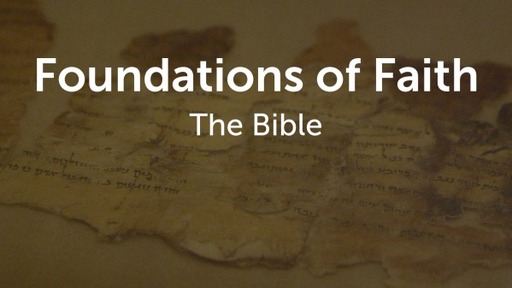Foundations of Faith

Revelation
Types of Revelation
General Revelation & Special Revelation
General Revelation
In Creation and In Conscience
General Revelation - Creation
General Revelation - Conscience
General Revelation - in Creation and through Conscience
Special Revelation
Non-Written Revelation
Negatively, it refers to practices and ideas received from human authorities that conflict with God’s revelation. Accepting such tradition constitutes rebellion against the Lord. In such traditions, people substitute mere human ideas for God’s word (Matt 15:2–6).
Positively, tradition can refer to the teaching of God himself, passed down through his written word, true prophets, Jesus, and the apostles (1 Cor 11:2; 2 Thess 2:15; 3:6).
Dreams
Prophecy (Verbal)
Prophecy is a divine gift by which a human being is enabled to speak divinely authoritative words.
After Jesus’ resurrection and ascension, there were prophets in the early church. There is some difference of opinion among scholars as to whether these New Testament prophets had the same level of authority as prophets in the Old Testament: did they, like the Old Testament prophets, utter the very word of God, or was their speech a supernaturally assisted human reflection? In any case, it is clear that the apostles, the group directly appointed by Jesus to lead the church, spoke with plenary divine authority, the same authority given to Moses and the other prophets of the Old Testament. The apostle Paul claimed the right to judge among prophets, and he insisted that his own writings should be the standard by which prophecy is judged. There were false prophets among God’s people, individuals who claimed to be speaking God’s word, but in fact spoke only their own words.
Many words of the prophets were eventually written down, and some of these form part of written special revelation. But the words of true prophets and apostles are authoritative even before they are written down.
Theophanies
God is always and everywhere present, but a theophany is an exceptional visible display of that presence.
The word “theophany” does not appear in the biblical text; it is a label invented to name a particular kind of special revelation—visible encounters with the divine. In each of these appearances, occurring particularly in the Old Testament, God gave a foretaste of the glory divine that believers will enjoy when “they will see his face” (Rev 22:4). This is the goal toward which the whole story of the Bible points: God is forming a people for himself who will enjoy eternal, face-to-face communion. Therefore theophanies—temporary experiences of that same communion—can teach us about what it means to be in the presence of God.
Visions
Visions are revelatory experiences that manifest before the visionary God’s will, plans, and/or perspective.
